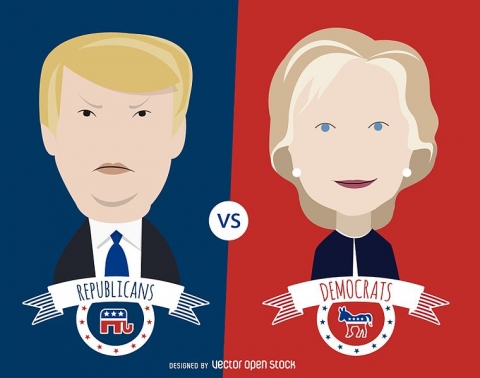Electoral College: A Beautiful Mess

By: Brandon T. Hamilton
From the Constitutional Convention compromise to our modern day Presidential election, the Electoral College has decided presidential elections in much the same way for the last 200 years. Only four times in the history of the Electoral College has the candidate winning the popular vote not successfully won the Electoral College. George W. Bush is the only president in the last 128 years to lose the popular vote and win the White House. According to a Gallop Poll, 62% of Americans are in favor of switching to a direct popular vote system for electing the President. Only 35% are satisfied with the current Electoral College system. Two options have been proposed to either alter or abolish the Electoral College: (1) The National Popular Vote Initiative, and (2) the complete abolition of the Electoral College in favor of a direct presidential election system. Abolishing the Electoral College would take a constitutional amendment. A constitutional amendment requires a 2/3 vote from each house of Congress and ratification by 3/4 of the states. Accomplishing this feat would be a near impossible task.
The National Popular Vote (NPV) plan is a proposed compact between States to pledge their electors to the presidential candidate who receives a majority of the national popular vote. There’s some question over whether this system is constitutional as a preliminary matter. Article II of the constitution reserves to the states the exclusive power to bind their electors, but Article I would require such a compact to be approved by Congress.
Proponents claim that it would force candidates to campaign in all states, instead of spending their time and money in a handful of swing states. The organizations and states behind the NPV are ready to implement their plan as soon as it is approved by enough states to reach 270 pledged electoral votes. They currently they have legislation enacted in 11 states which together have 165 electoral votes.
One risk involved in relying on the states to solidify the compact is that this option makes the system susceptible to political change. A state could remove itself from the compact without the approval of the other states. If the majority of citizens of these states see their electors pledged to candidates that do no not share their values, then political pressure could follow that would force the legislature to withdraw from the compact, even after Election Day.
Opponents state that there is a risk of too much control by the most populous states. Of the 128 million votes cast in the 2012 Presidential Election, more than 50% were from the 10 states with the largest populations; of these ten states, five are already considered battlegrounds: Florida, Ohio, Pennsylvania, North Carolina, and Michigan. The National Popular Vote website claims that small states are virtually ignored under the Electoral College system. The Electoral College was originally intended to be a protection for small states. It seems that it is accomplishing this goal at least in part. In the 2016 Presidential Election, half of the swing states are relatively small. Many have 10 or fewer electoral votes.
Finally, forty percent of all campaign donations in the 2008 Presidential election came from 4 out of 5 of the most populous states: California, Texas, New York, and Illinois. If 4 out 5 of the most populous states contained the most campaign contributions, it would be conceivable that the candidates would cater to the masses of voters and dollars in these states.
Until the National Popular Vote collation reaches the golden number of 270 pledged electoral votes, while avoiding or surviving any Constitutional challenge, it appears the United States will continue to operate under the Electoral College. The Electoral College was constructed broadly by the authors of the Constitution to allow it to evolve with the growth of the nation and the emergence of political parties. The Founding Fathers created the United States Constitution and the institutions contained within to adapt slow and steadily; avoiding at all cost the rapid evolution at the hands of political pressure. In the meantime, our leaders will continue to be elected by our “Beautiful Mess,” the Electoral College.
